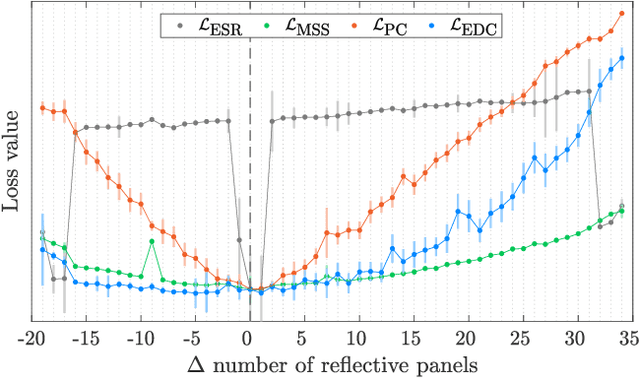Similarity Metrics For Late Reverberation
Paper and Code
Aug 27, 2024


Automatic tuning of reverberation algorithms relies on the optimization of a cost function. While general audio similarity metrics are useful, they are not optimized for the specific statistical properties of reverberation in rooms. This paper presents two novel metrics for assessing the similarity of late reverberation in room impulse responses. These metrics are differentiable and can be utilized within a machine-learning framework. We compare the performance of these metrics to two popular audio metrics using a large dataset of room impulse responses encompassing various room configurations and microphone positions. The results indicate that the proposed functions based on averaged power and frequency-band energy decay outperform the baselines with the former exhibiting the most suitable profile towards the minimum. The proposed work holds promise as an improvement to the design and evaluation of reverberation similarity metrics.
 Add to Chrome
Add to Chrome Add to Firefox
Add to Firefox Add to Edge
Add to Edge